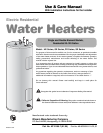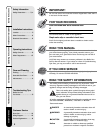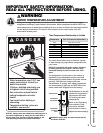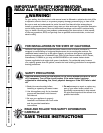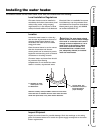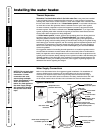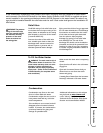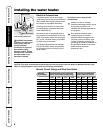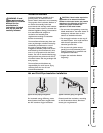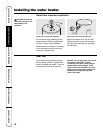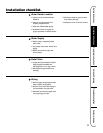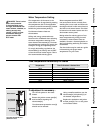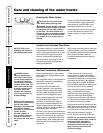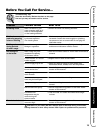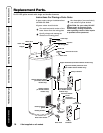
Installing the water heater.
The location chosen for the water heater must take into consideration the following:
Local Installation Regulations
This water heater must be installed in
accordance with these instructions, local
codes, utility codes, utility company
requirements or, in the absence of local
codes, the latest edition of the National
Electrical Code. It is available from some
local libraries or can be purchased from
the National Fire Protection Association,
Batterymarch park, Quincy, MA 02269
as booklet ANSI/NFPA 70.
Location
Locate the water heater in a clean dry
area as near as practical to the area of
greatest heated water demand. Long
uninsulated hot water lines can waste
energy and water.
Place the water heater in such a manner
that the thermostat and element
access panels can be removed to permit
inspection and servicing such as removal
of elements or checking controls.
The water heater and water lines should
be protected from freezing
temperatures. Do not install the water
heater in outdoor, unprotected areas.
CAUTION: The water heater should
not be located in an area where leakage
of the tank or connections will result in
damage to the area adjacent to it or to
lower floors of the structure. Where
such areas cannot be avoided, it is
recommended that a suitable catch
pan, adequately drained, be installed
under the water heater.
A—Diameter of water
heater plus 2″ min.
B—Maximum 2″
NOTICE: Auxiliary catch pan MUST conform to local codes.
Catch Pan Kits are available from the store where the water
heater was purchased, or any water heater distributor.
B
A
To open drain, line
should be at least 3/4″
ID and pitched for
proper drainage.
5
Safety Instructions Installation Instructions Operating Instructions Care and Cleaning Troubleshooting Tips Customer Service
Inspect Shipment
Inspect the water heater for possible damage. Check the markings on the rating
plate of the water heater to be certain the power supply corresponds to the water
heater requirements.



